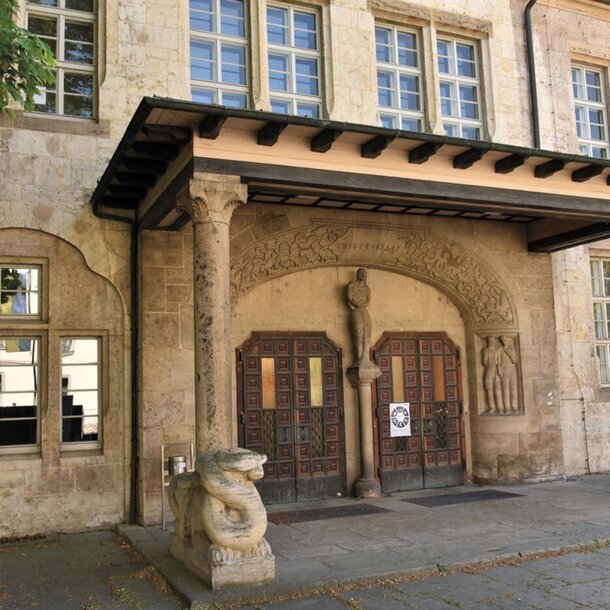«Blended Intensive Programmes» (BIPs) provide grants for the organisation and implementation of learning projects that are designed and carried out jointly with at least two other European universities. The format can vary according to the discipline involved. The combination of an online and a short in-person learning phase (5 to 30 days) is obligatory. At least three ECTS credits (European Credit Transfer and Accumulation System) must be awarded to students and recognised.
Sustainable Development of Networks and Partnerships Through BIPs
Encouraging developments
The large number of approved Blended Intensive Programmes – there were almost 470 projects in the 2023 call – demonstrates the popularity of this mobility format. The number of members of the BIP working group organised by the NA DAAD has also risen from eight (2021) to around 60 (2023). This stems from the widespread interest in BIPs, but it also highlights the considerable need for consultations and exchange.
Most German universities have already organised their own BIP or participated in one as a sending organisation. This trend indicates that BIPs have become an important tool for the further development of international collaborations and the strategic positioning of German universities. The simple application procedure with the NA DAAD and broad scope of action suggest that this positive trend will continue.
Possible applications
The majority of universities use BIPs to sustainably develop new or existing partnerships, but some use them to cover the demands of students who for various reasons are unable to participate in a long-term mobility. Thanks to the wide spectrum of mobility types who can take part in a BIP – from undergraduate students to Master’s and doctoral students and teachers – BIPs are essentially open to all groups of people at university.
Individuals from partner countries may also receive Erasmus+ funding to take part in a BIP (also as teachers). Thanks to the format, universities have also succeeded in generating the interest of participants at partner universities in long-term mobilities in Germany.

In the winter semester 2022/2023, 17,539 students were enrolled at the University of Jena. Of the University’s total student population, 56 percent were women and 15 percent of international origin, coming from 120 different nations.
The example of Friedrich Schiller University Jena
The University of Jena is a real-life example of how the format can be used to sustainably develop networks and partnerships with the BIP in the context of the Coimbra Group Master Initiative in Peace and Conflict Studies. The initiative is designed to promote exchange and guarantee the recognition of credits gained at the host university. The first BIP took place in March 2023, a second is due to follow in spring 2024. There are plans to organise a BIP every year, each time at a different location and with a different thematic focus.
«The new format makes it possible for colleagues to work together on projects internationally with less effort,» stresses Anne Poser, who is in charge of coordinating this BIP at the University of Jena. As the Coimbra Group collaboration event showed in spring, this could strengthen relations between the universities and the network as a whole. She said it was important to keep a close eye on target groups and formal conditions, since these are responsible for the success of the programme. Poser said it was also necessary to consider whether the BIP can be incorporated into the curriculum and how participants can benefit from this, for example through intercultural and interdisciplinary perspectives.
Anne Poser hopes that short-term mobilities will increase interest in a subsequent and therefore longer visit to her university. She believes the programmes have the potential to attract more international students and researchers to Germany. Moreover, by rotating the BIPs, regular collaborations take place between teaching staff, which can then be expanded to other areas, for example in research, thus leading to the sustainable internationalisation of the different institutes and courses offered.
Other considerations
Of course, BIPs also involve challenges. «One challenge we always face are the changing semester dates and the need to consider important international public holidays. This requires early planning and good coordination,» explains Poser. «Another challenge – probably the biggest – is maintaining participant numbers. However, by using waiting lists, it’s relatively easy to ensure we fulfil the requirements.» In general, the biggest challenge, especially for International Office, is developing a policy to fairly distribute the limited budget: on the one hand, for mobility funds for participation in BIPs abroad, and on the other, for BIP OS funds within the university for the institutes that want to coordinate such a programme.
Despite a number of obstacles, the high level of interest, application numbers and numerous possible uses and their outcomes demonstrate the enormous added value of Blended Intensive Programmes for German universities. BIPs continue to be a valuable addition to their strategic internationalisation endeavours.